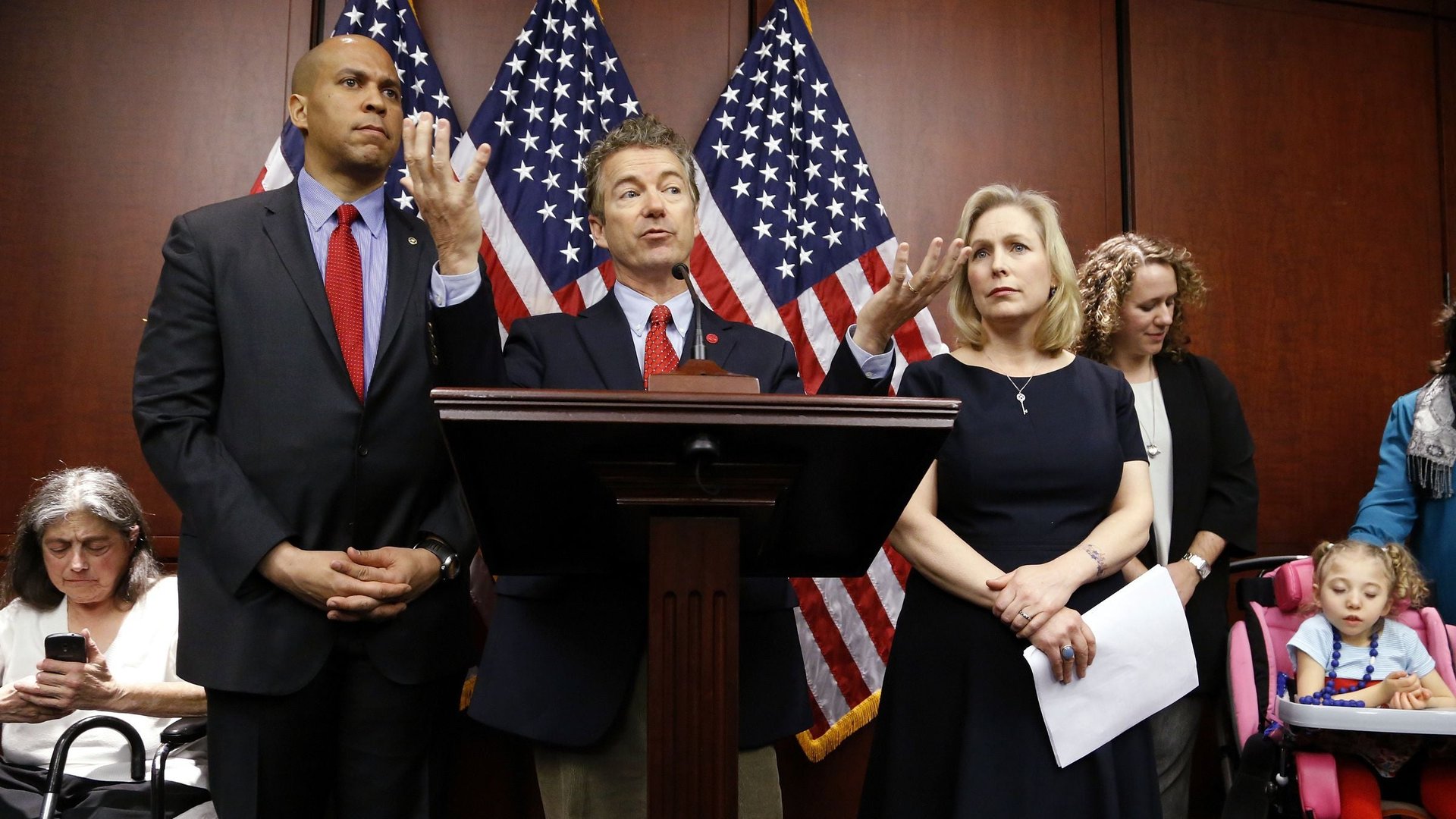Why the new bill to make medical marijuana legal in the US is going to get smoked
The first bill that would make medical marijuana legal in the US on a state-by-state basis was introduced by three senators, including Republican presidential contender Rand Paul, a further sign that Americans are taking an increasingly favorable view toward the drug.


The first bill that would make medical marijuana legal in the US on a state-by-state basis was introduced by three senators, including Republican presidential contender Rand Paul, a further sign that Americans are taking an increasingly favorable view toward the drug.
The bill would recognize the ability of states to pass their own marijuana statutes, catching up to the reality that Alaska, Washington, Colorado and California have enacted legal weed regimes that stand in tension with federal law. It would also allow government doctors who treat veterans to prescribe the drug to their patients, and make it easier for scientists to research the drug’s effects by relaxing rules that currently list the drug as one of the most dangerous to health, despite significant evidence to the contrary.
However, despite the bipartisan coalition behind the bill and the applause of marijuana advocates, it seems all too likely that politics will stand between the Compassionate Access, Research Expansion and Respect States Act—yes, that makes it the CARERS Act—and passage into law.
The two Democrats behind the bill, New Jersey’s Corey Booker and New York’s Kristen Gillibrand, are firmly in the mainstream of their party when it comes to supporting medical marijuana. But Paul is in a trickier place. While loosening the restrictions on marijuana use does indeed command an increasing share of public approval, there’s one group that doesn’t cotton to the idea: Republican voters over the age of 34.
In the 2012 Republican presidential primary election, the median voter was 51 years old (pdf).
Legal marijuana is popular with Paul’s base of younger, more libertarian voters—the kind of Republicans more likely to support looser rules.
“I think it’s very smart on Rand Paul’s part,” Taylor West, the deputy director of the National Cannabis Industry Association, told Quartz. “He takes a visible stand on an issue that others in his party have been hesitant to embrace, which sets him apart. But it’s an issue that has huge popular approval [and] is grounded in a legitimate federalist philosophy.”
Paul’s likely opponents in a presidential primary, including fellow Senators Ted Cruz and Marco Rubio, have been less eager students of public opinion on the issue, at best expressing their support for state autonomy. While that is precisely the chord the supporters of this bill are trying to play, Paul’s opponents may not relish handing him a visible legislative victory during primary season, and the officially neutral Republican senate leadership may decline to bring the bill to the floor before a presidential nominee is anointed in 2016.
But that doesn’t mean the bill is dead. As West points out with this poll (pdf), “medical marijuana legalization isn’t controversial anymore.”
Look for this legislation to resurface after the primaries are over, and especially if Paul is the nominee—it will be the perfect way for a conservative politician to reassure skeptical younger voters on the way to the general election.